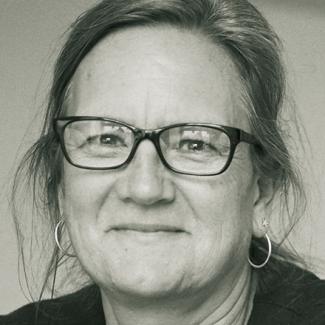Demographic change
Older people’s rights are human rights
 picture alliance / photothek / Florian Gaertner
picture alliance / photothek / Florian Gaertner
Demographic ageing is a decisive characteristic of the 21st century, says Christel Wasiek, author of the book “Seniorenhilfe weltweit” (“Senior aid worldwide”), quoting the UN. The reason, according to the author, is improved living conditions worldwide which are allowing people to live longer. However, she continues, the respective socio-cultural, economic and political conditions under which people age vary greatly in countries around the world.
In her book, published in 2021, Wasiek reports from her 50 years of experience working with older people in Latin America and the Caribbean. In 2008, the author established the foundation “Seniorenhilfe weltweit” to promote older people’s welfare.
In countries like Uruguay, Chile or Brazil, people over 60 make up over 16 % of the population, on average, while in Cuba they make up over 20 %. The life expectancy is an average of 77.5 years, though women live to be over 80 on average. The majority of these people do not have adequate social security. The quality of life is generally poor, especially for rural, indigenous and African American people, Wasiek writes.
For a long time, older people only appeared at the margins of development policy as a target group. The assumption was made that families would care for older people in the countries of the global South. The topic was finally put on the international agenda in the 1980s thanks to the International Federation on Aging, a civil-society organisation made up of representatives of governments, non-governmental organisations, universities, industry and individuals from almost 80 countries.
The number of older people has been growing around the world for years, but developing countries in particular were and still are not prepared to address the consequences of this demographic change from a socio-political standpoint, Wasiek writes. However, there have been a variety of conferences that have strongly emphasised the difficult economic and social situation of older people in the countries of the global South, including the two UN World Assemblies on Ageing, one of which took place in Vienna in 1982 and the other in Madrid in 2002.
At those conferences, both governments as well as civil society were called on to address the impact of global ageing from a socio-political perspective while considering the needs of older people. Governments and NGOs from the global North were asked to cooperate with partners in the global South.
At the same time, according to Wasiek, gerontology – the study of old age and ageing – gained in importance and influenced the practice of work with senior citizens. The focus was no longer on simply caring for older people. Instead, social gerontology is much more oriented towards human rights and strives to develop the potential of older people to organise and care for themselves. In short, the goal became to improve the quality of life of older people through, among other things:
- the creation of social services,
- meaningful tasks and free time activities for older people (like sports, gardening and senior trips),
- network building among older people,
- strengthening their political influence,
- multi-generational work, in order to raise everyone’s awareness of each other,
- working towards a more positive image of ageing in society,
- exchanges of information and expertise, as well as qualification measures for employees in gerontological fields.
Some progress has been made since social work with senior citizens began, but there is still a lot to do. The book appeals above all to responsible parties in development policy to take into account the consequences of demographic change in their projects and therefore help to fight poverty among older people in developing countries.
Book
Wasiek, C., 2021: Seniorenhilfe weltweit. Erfahrungen aus Lateinamerika (“Helping the elderly worldwide. Experiences from Latin America”). Herder, Freiburg.
Spanish version, 2022: Opción por la vejez. Experiencias en América Latina. Montevideo, Doble clic Editoras.
Dagmar Wolf is an editorial assistant at E+Z/D+C.
euz.editor@dandc.eu




